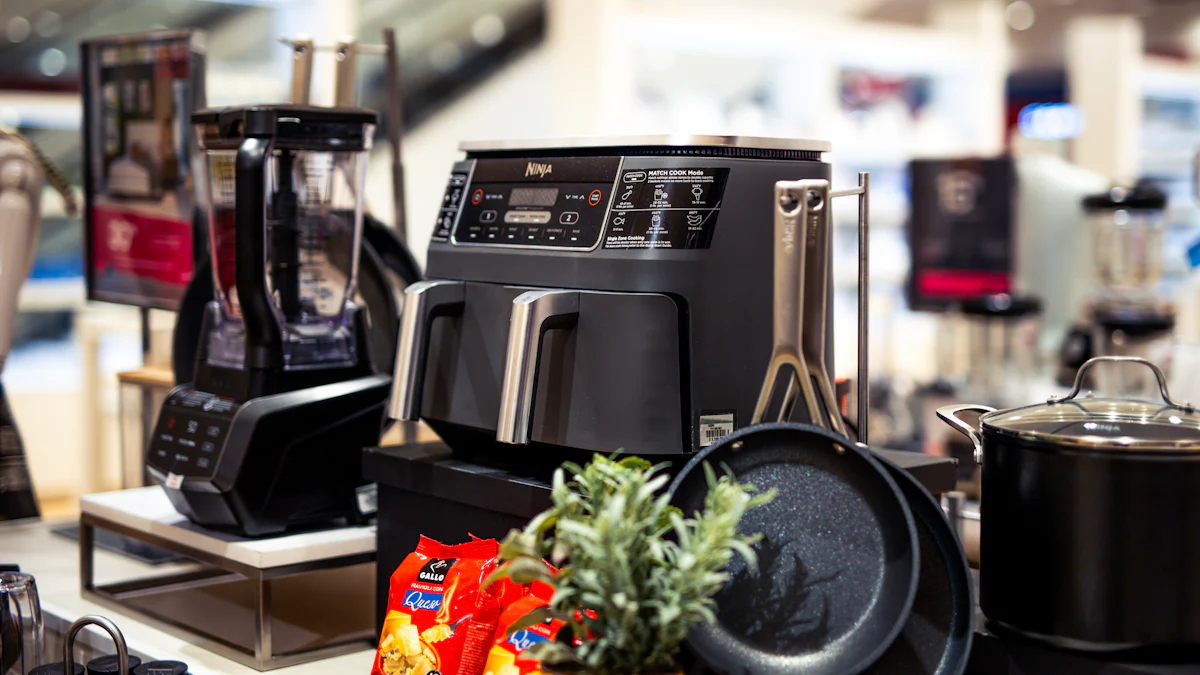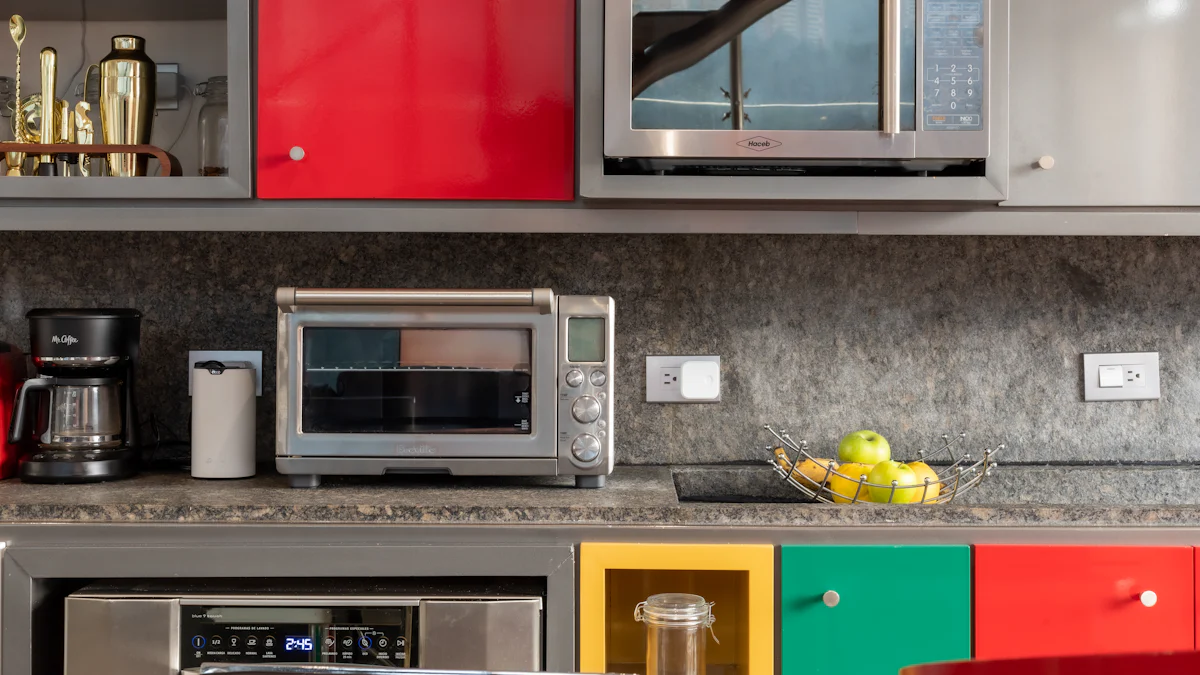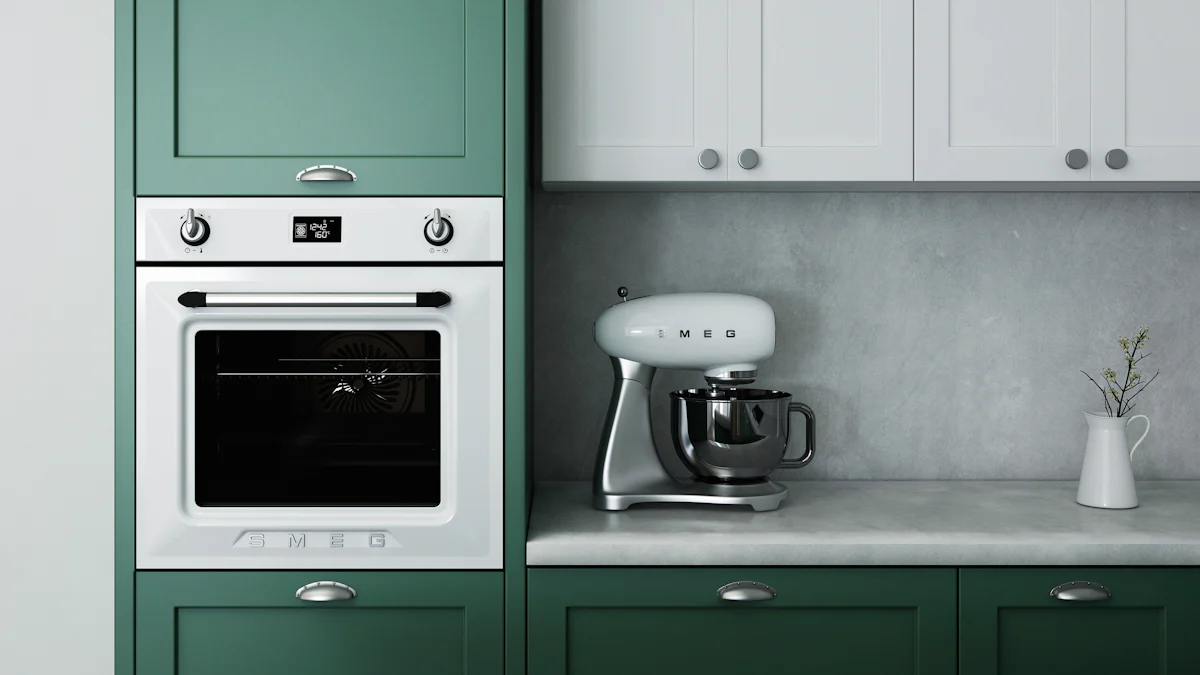Is a Convection Oven the Same as an Air Fryer

Modern kitchen appliances have gained immense popularity. Many people often confuse a convection oven with an air fryer. This blog aims to clarify the differences and similarities between these two appliances.
Defining the Appliances

What is a Convection Oven?
Basic Definition
A convection oven uses fans to circulate hot air around the food. This method ensures even cooking and browning. The design can vary from wall ovens to countertop models.
How It Works
Fans inside the oven move hot air around the food. This process strips away the insulating vapor layer on the food's surface. The result is faster heating and crispier textures. The continuous air movement helps achieve an even cook.
Common Uses
Convection ovens excel at baking, roasting, and broiling. These ovens handle large meals and multiple dishes simultaneously. Many people use them for cookies, roasts, and casseroles.
What is an Air Fryer?
Basic Definition
An air fryer is a compact appliance that mimics the function of a convection oven. The design focuses on cooking food quickly and efficiently. The airtight chamber keeps hot air contained during the cooking process.
How It Works
The small size of an air fryer allows for rapid cooking. The appliance circulates hot air around the food, similar to a convection oven. The tight cooking chamber ensures no heat escapes, leading to quicker cook times.
Common Uses
Air fryers are popular for preparing fried foods with less oil. People use them for fries, chicken wings, and vegetables. The appliance also excels at reheating leftovers quickly.
Comparative Analysis

Cooking Mechanism
Heat Distribution
Convection ovens use fans to circulate hot air around the food. This method ensures even cooking and browning. The fan's placement in the oven allows for efficient air movement. Air fryers, on the other hand, focus a high amount of heat onto a small cooking area. The fan sits closer to the food, enabling quicker cooking.
Cooking Speed
Air fryers cook food faster than convection ovens. The smaller size and efficient air circulation lead to shorter preheat times. Convection ovens also cook food quickly but not as fast as air fryers. The larger cooking space requires more time to reach the desired temperature.
Versatility and Use Cases
Types of Dishes
Convection ovens excel at baking, roasting, and broiling. These ovens handle large meals and multiple dishes simultaneously. Many people use them for cookies, roasts, and casseroles. Air fryers are popular for preparing fried foods with less oil. People use them for fries, chicken wings, and vegetables. The appliance also excels at reheating leftovers quickly.
Cooking Techniques
Convection ovens offer a variety of cooking techniques. Users can bake, roast, broil, and even dehydrate food. The versatility makes these ovens suitable for different culinary needs. Air fryers focus on frying with minimal oil. The compact design allows for rapid cooking and crisp textures. Some models also offer baking and grilling options.
Advantages and Disadvantages
Pros and Cons of Convection Ovens
Pros:
Versatile cooking methods
Even heat distribution
Suitable for large meals
Cons:
Larger size requires more counter space
Longer preheat times compared to air fryers
Pros and Cons of Air Fryers
Pros:
Faster cooking times
Compact and portable
Uses less oil for frying
Cons:
Limited cooking capacity
Less versatile than convection ovens
Practical Advice
When to Use a Convection Oven
Best Scenarios
A convection oven excels in several cooking scenarios. Baking cookies or cakes benefits from even heat distribution. Roasting large cuts of meat like turkeys or roasts also works well. Preparing multiple dishes simultaneously is another strong suit. The spacious interior allows for cooking different items at once without flavor transfer.
Tips for Optimal Use
To get the best results from a convection oven, follow these tips:
Preheat the oven to the required temperature before placing food inside.
Use shallow pans to allow better air circulation around the food.
Reduce the cooking temperature by 25°F compared to traditional ovens.
Rotate the pans halfway through the cooking process for even browning.
When to Use an Air Fryer
Best Scenarios
An air fryer shines in specific situations. Cooking smaller portions quickly is ideal. Preparing fried foods with less oil is another advantage. Reheating leftovers to achieve a crispy texture works well. The compact size makes it perfect for small kitchens or limited counter space.
Tips for Optimal Use
Maximize the efficiency of an air fryer with these tips:
Avoid overcrowding the basket to ensure even cooking.
Shake the basket halfway through the cooking time for uniform crispiness.
Lightly coat food with oil to enhance browning and flavor.
Use pre-programmed settings for common foods like fries or chicken wings.
Can You Substitute One for the Other?
Situations Where Substitution Works
In some cases, a convection oven can substitute for an air fryer. Both appliances use fans to circulate hot air, achieving similar results. Baking or roasting small portions can work in either appliance. Reheating food to achieve a crispy texture is another scenario where substitution is possible.
Adjustments Needed
When substituting a convection oven for an air fryer, consider these adjustments:
Increase the cooking time slightly due to the larger oven space.
Use a higher fan setting if available to mimic the intense air circulation of an air fryer.
Place food on a wire rack to allow better air flow around the food.
Monitor the food closely to prevent overcooking or burning.
Frequently Asked Questions (FAQs)
Common Concerns
Health Considerations
Many people wonder about the health benefits of using convection ovens and air fryers. Convection ovens use less oil compared to traditional frying methods. This reduces the fat content in meals. Air fryers also require minimal oil. This makes air fryers a healthier option for frying foods. Both appliances help in preparing low-fat meals. This promotes better heart health and weight management.
Energy Efficiency
Energy efficiency is another common concern. Convection ovens consume more energy due to their larger size. The preheating process also takes longer. Air fryers, being smaller, use less energy. The rapid cooking time further reduces energy consumption. For those looking to save on electricity bills, air fryers offer a more energy-efficient option.
Maintenance and Care
Cleaning Tips
Proper cleaning extends the lifespan of both appliances. For convection ovens, remove racks and trays before cleaning. Use a damp cloth to wipe the interior. Avoid abrasive cleaners that can damage the surface. Air fryers have removable baskets. These can be washed with warm soapy water. Ensure all parts are dry before reassembling.
Longevity and Durability
Longevity depends on proper care and usage. Convection ovens, with regular maintenance, can last many years. Avoid overloading the oven to prevent strain on the fan. Air fryers also offer durability. Regular cleaning and avoiding overcrowding the basket will extend the appliance's life. Both appliances benefit from following the manufacturer's guidelines for optimal performance.
Convection ovens and air fryers both use fans to circulate hot air around food. This method cooks food faster and makes it crispier. However, air fryers are smaller and cook food quicker. Convection ovens can handle larger portions and offer more cooking methods. Choosing the right appliance depends on individual needs. Experimenting with both appliances can help determine what works best.
See Also
Substitute an Oven with an Air Fryer: Is it Possible?
Comparing Air Fryers and Convection Ovens: Which Wins?
Foods Unsuitable for Cooking in an Air Fryer
